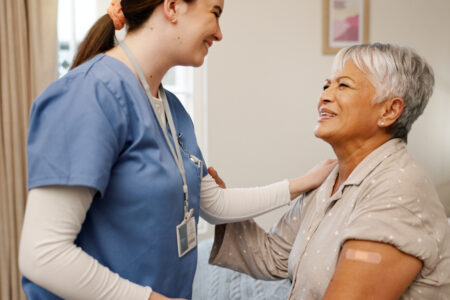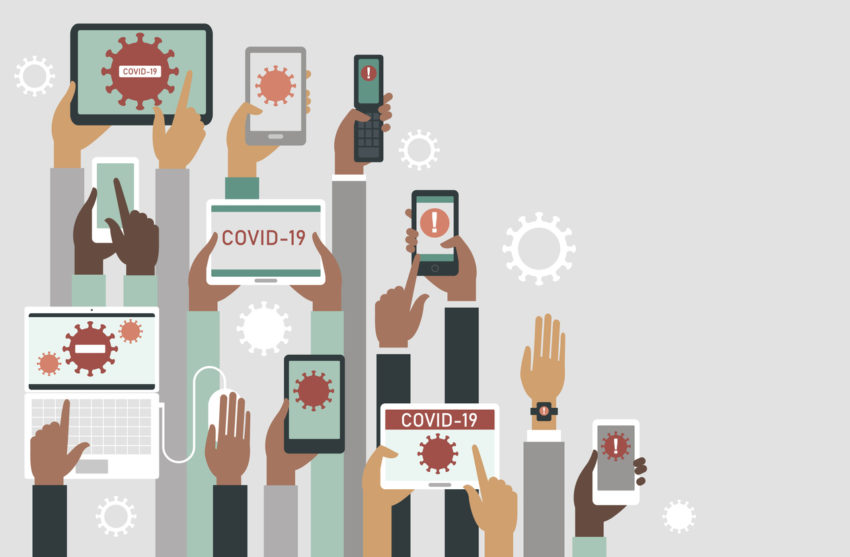
Share On Social!
Today, U.S. Surgeon General Dr. Vivek Murthy issued his first public advisory of the Biden Administration to warn Americans about health misinformation.
Health misinformation is threatening U.S. response to COVID-19, preventing Americans from getting vaccinated, and prolonging the pandemic.
Misinformation about COVID-19 and vaccines also often targets Latino and Black communities, which have been disproportionately affected by COVID-19 and have low rates of vaccine uptake.
“Health misinformation is an urgent threat to public health. It can cause confusion, sow mistrust, and undermine public health efforts, including our ongoing work to end the COVID-19 pandemic,” Murthy said in a press release about the advisory. “My job is to help people stay safe and healthy, and without limiting the spread of health misinformation, American lives are at risk.”
“From the tech and social media companies who must do more to address the spread on their platforms, to all of us identifying and avoiding sharing misinformation, tackling this challenge will require an all-of-society approach, but it is critical for the long-term health of our nation.”
What is Health Misinformation?
Health misinformation is information that is false, inaccurate, or misleading according to the best available evidence.
It is not a recent phenomenon, either.
“Persistent rumors about HIV/AIDS for decades have undermined efforts to reduce infection rates in the U.S. During the Ebola epidemic, misinformation spread rapidly on social media,” according to a press release about the the Surgeon General’s new advisory. “A 2014 study found that Ebola-related tweets that contained misinformation were more likely to be politically charged and have content promoting discord.”
How is Health Misinformation Impacting the COVID-19 Pandemic?
During the COVID-19 pandemic, Americans have been exposed to a wide range of misinformation about masks and social distancing, treatments, and vaccines.
As of late May, 67% of unvaccinated adults had heard at least one COVID-19 vaccine myth and either believed it to be true or were not sure.
“Health misinformation has already caused significant harm, dividing families and communities and undermining vaccination efforts,” according to a press release about the the Surgeon General’s new advisory. “An analysis of millions of social media posts found that false news stories were 70% more likely to be shared than true stories. And a recent study showed that even brief exposure to misinformation made people less likely to want a COVID-19 vaccine.”
How is Health Misinformation Impacting Latinos During the COVID-19 Pandemic?
Communities of color tend to be more skeptical of the COVID-19 vaccines. This can be due to historical trauma and/or mistrust of government.
People also spread health misinformation on social media.
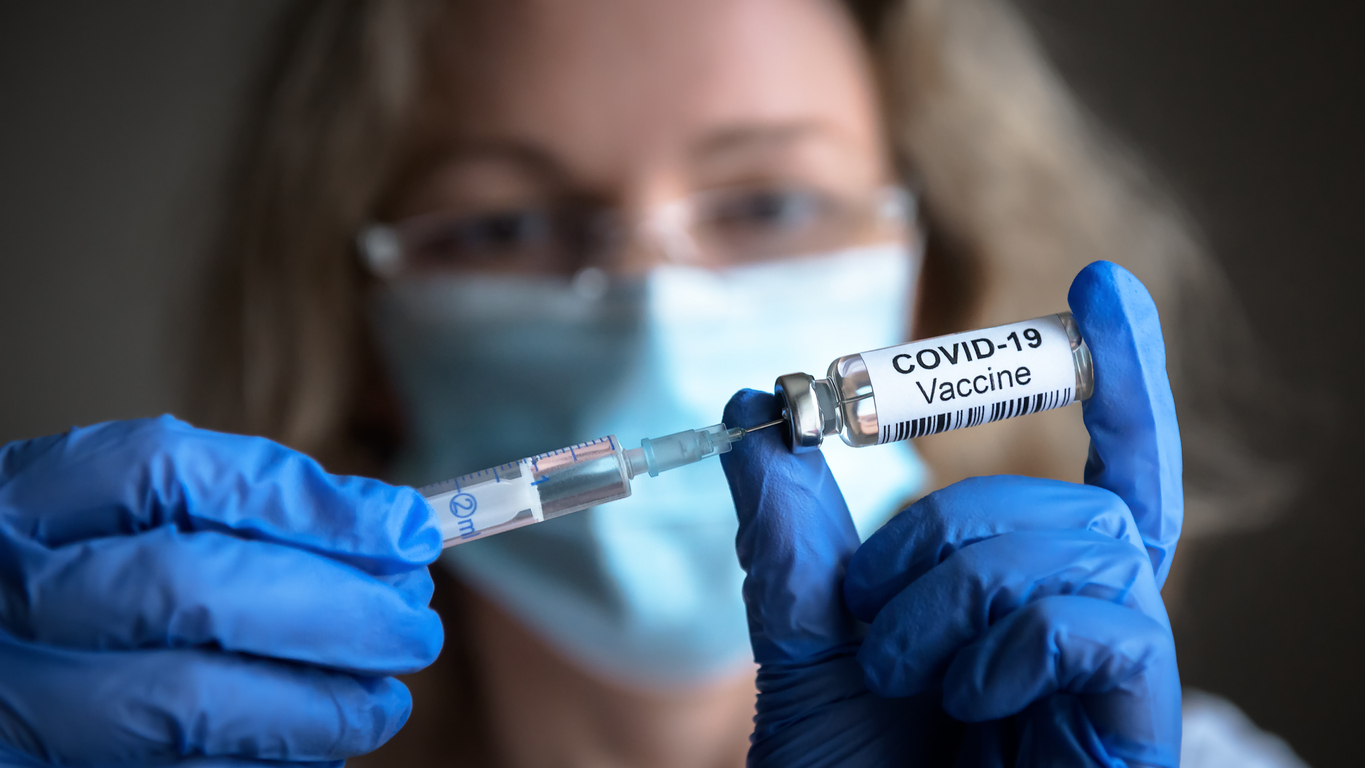 Over 65% of anti-vaccine misinformation on Facebook and Twitter comes from 12 prominent anti-vaccine leaders known as the “Disinformation Dozen,” according to a report by the Center for Countering Digital Hate (CCDH) and Anti-Vax Watch.
Over 65% of anti-vaccine misinformation on Facebook and Twitter comes from 12 prominent anti-vaccine leaders known as the “Disinformation Dozen,” according to a report by the Center for Countering Digital Hate (CCDH) and Anti-Vax Watch.
“The Disinformation Dozen are twelve anti-vaxxers who play leading roles in spreading digital misinformation about Covid vaccines. They were selected because they have large numbers of followers, produce high volumes of anti-vaccine content or have seen rapid growth of their social media accounts in the last two months,” according to the report.
These individuals often explicitly target skeptical Latinos and Black people through their anti-vaccine content.
“Kennedy and Children’s Health Defense released a film in mid-March targeting members of the Black and Latino communities with tailored anti-vaccine messages. Facebook and Twitter continue to allow him a platform to promote these false claims,” according to the report.
How Does the Surgeon General’s New Advisory Aim to Address Health Misinformation?
The advisory outlines how the nation can confront health misinformation.
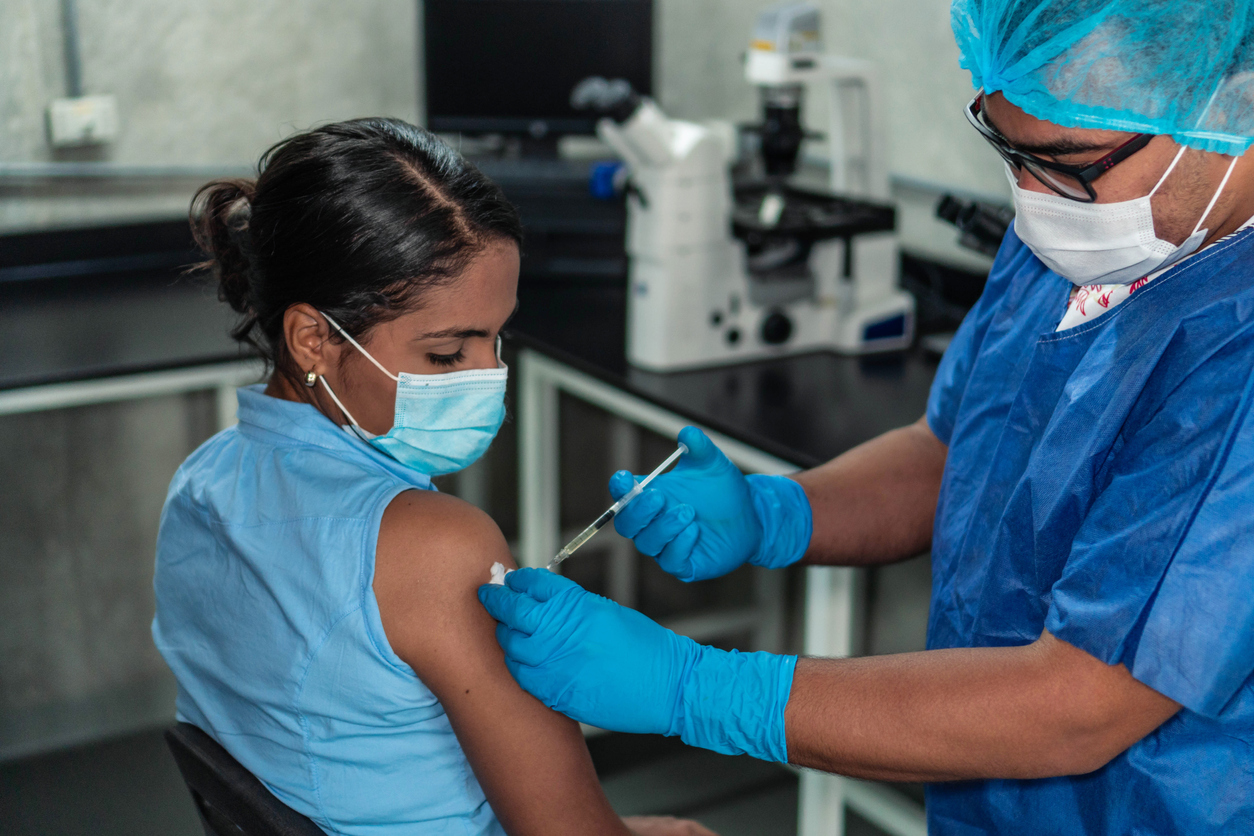 Here are the top recommendations:
Here are the top recommendations:
- Equip Americans with the tools to identify misinformation, make informed choices about what information they share, and address health misinformation in their communities, in partnership with trusted local leaders.
- Expand research that deepens our understanding of health misinformation, including how it spreads and evolves; how and why it impacts people; who is most susceptible; and which strategies are most effective in addressing it.
- Invest in longer-term efforts to build resilience against health misinformation, such as media, science, digital, data, and health literacy programs and training for health practitioners, journalists, librarians, and others.
- Convene federal, state, local, territorial, tribal, private, nonprofit, and research partners to explore the impact of health misinformation, identify best practices to prevent and address it, issue recommendations, and find common ground on difficult questions, including appropriate legal and regulatory measures that address health misinformation while protecting user privacy and freedom of expression.
- Implement product design and policy changes on technology platforms to slow the spread of misinformation.
“The only way to address health misinformation is to recognize that all of us, in every sector of society, have a responsibility to act,” Murthy said in a press release about the advisory. “But it’s not just an individual responsibility. We need institutions to recognize that this issue is their moral and civic responsibility, too, and that they are accountable.”
Read the full Surgeon General’s Advisory.
What Public Health Efforts Are Working to Address Health Misinformation among Latinos?
Public health leaders are working to build vaccine confidence for Latino communities.
- Use Clear and Accessible Messaging. We can build trust by using clear, accessible, easy-to-understand messaging.
- Be Credible and Transparent. It’s important that we provide credible and transparent information about the vaccine. We should not make any claims that aren’t verified by medical experts.
- Uplift Local Leaders in Communities of Color. One of the most important ways to build vaccine confidence is through uplifting local leaders in communities of color, like the Latino community. Having ambassadors to address vaccine questions and concerns helps calm fears that the vaccines weren’t developed with these vulnerable populations in mind.
- Build Cultural Humility. Cultural humility means being aware of how history and culture intersect to affect people’s beliefs, especially when it comes to historical trauma and wrongdoing, according to the Hogg Foundation for Mental Health. Building vaccine confidence will require knowledge of the intersection of history and culture.
- Be Respectful and Empathetic. It’s important to approach hesitant communities with respect and empathy. Dismissing people’s concerns, even if rooted in misinformation, may upset people who are just looking for answers.
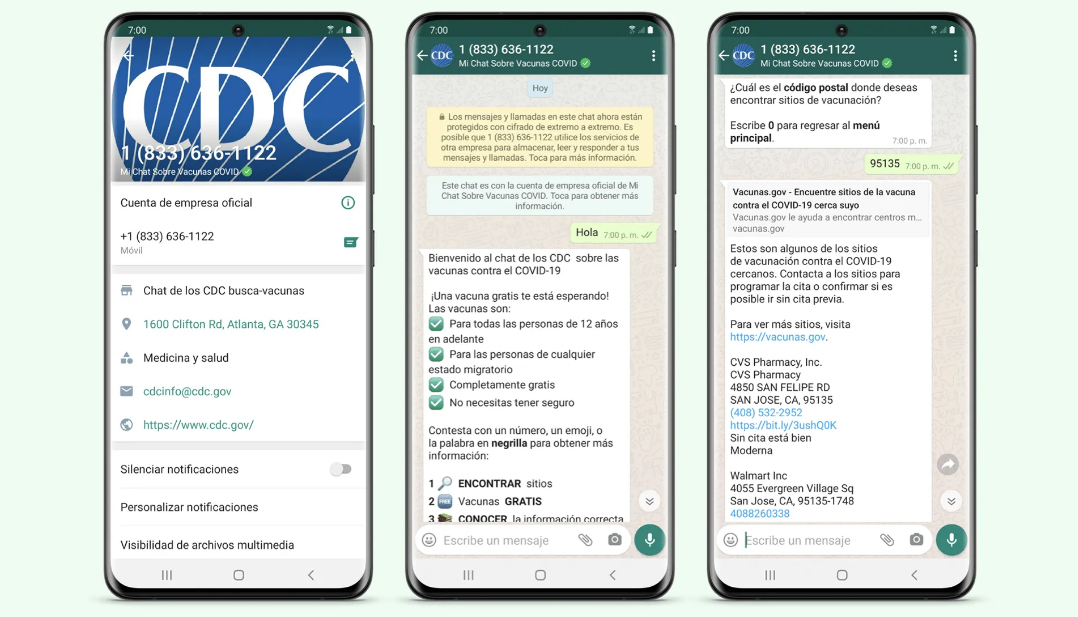 Experts also say we still need more coronavirus vaccine information available in Spanish.
Experts also say we still need more coronavirus vaccine information available in Spanish.
Our team at Salud America! is debunking common myths and addressing vaccine misinformation in English and Spanish.
The U.S. Department of Health & Human Services has a bilingual “We Can Do This” / “Juntos Sí Podemos” COVID-19 campaign.
CDC also partnered with WhatsApp, a social media messaging platform, to deliver COVID-19 vaccine information to Spanish-speakers. The chat is called “Mi Chat Sobre Vacunas COVID.”
“This new Spanish-language vaccine finder the CDC developed makes it easy to find a location to get the shot, order a free ride to get there and get information,” according to a release.
What Can You Do to Prevent the Spread of Health Misinformation?
Get your COVID-19 vaccine! Find COVID-19 vaccine locations near you in English or Spanish!

You can also help our Salud America! team share stories of Vaccine Change of Heart Heroes in English and Spanish. These real Latinos overcame misinformation, got the vaccine, reconnected with family, and are helping end the pandemic!
Or share Salud America!’s “Juntos, We Can Stop COVID-19” campaign.
The campaign features bilingual, culturally relevant fact sheets, infographics, and video role model stories. These encourage Latinos to change their public health behaviors, including getting the vaccine when available.
Bring the campaign with your friends, family, and colleagues!
By The Numbers
142
Percent
Expected rise in Latino cancer cases in coming years

